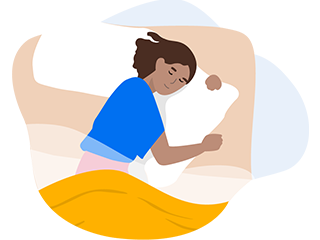What does burnout feel like?
You might feel:
isolated and trapped
- irritable
- a lack of your usual energy or motivation
- less satisfied with work
- exhausted or drained
- a sense of procrastination
- disengaged from work you used to value
- unable to sleep as you usually do
- headaches and body pain
- a feeling of building stress that won’t go away.












